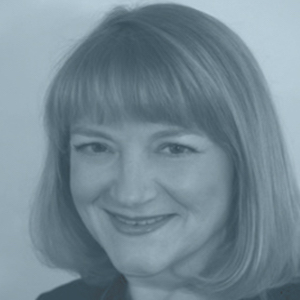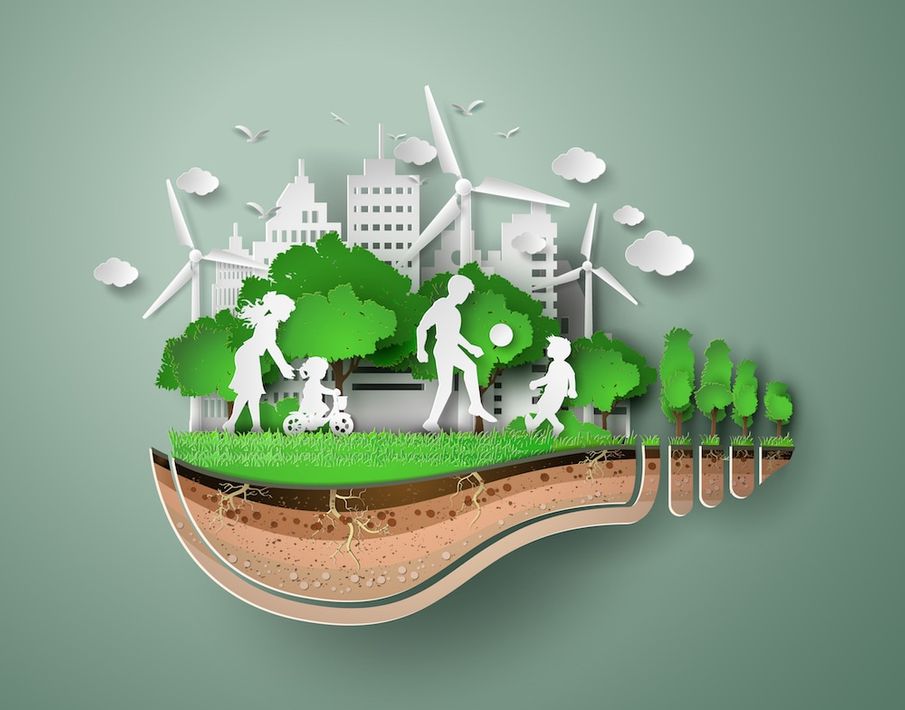A movement encouraging people to care more about the happiness of others

With the Dalai Lama as their patron, Action for Happiness is a collective of people working to spread positivity and joy to help improve society, through actionable advice based on scientific research. They couldn't really sound more up our street! We had a chat with board member Vanessa King to find out more.
Could you tell us a little bit more about Action for Happiness and the work they do?
Action for Happiness is a social movement aimed at proactively building psychological wellbeing and resilience, and reducing ill-health. In short, creating a kinder, more caring world and enabling everyone to lead a happier life. We do this by sharing evidence-based ideas to enable practical action by individuals, communities, workplaces, and schools.
You’ve had quite a corporate background (qualified accountant at Arthur Andersen, business analyst for PWC) was there a moment where your interest switched from this, to an interest in people and organisations?
I've always been interested in what brings out the best in people, indeed my first degree was psychology and biology. After qualifying as an accountant, I realised I was most passionate about the people side of organisations. My journey to where I am now involved stepping stones in HR and many years in organisation, talent and leadership development consulting. I still work with organisations to help create workplaces that work for people, as well as the bottom line.
It must have been quite a shift moving into AFH, did you find it had an affect on your own wellbeing? Did this new direction change your own approach to happiness?
I've been actively involved with Action for Happiness pretty much from Day 0 - since before it launched. I'd just finished my Masters in positive psychology with Martin Seligman at the University of Pennsylvania, so it was good timing. It's been great putting my knowledge into practical action straight away. I see a key part of what I do as helping people 'unpack' what happiness really is and what it takes. We all say we want to be happy, but we don't generally think about what that really means. It's dynamic - and can change from day-to-day and time-to-time, so it's a journey not a destination.
Absolutely it has positively impacted my own wellbeing. I passionately believe that greater awareness and action of what human beings need to feel happier and function well in life can make a big difference. I have greater meaning and purpose, I take better care of myself physically and I try to invest more attention and energy in my relationships with other people.
We all say we want to be happy, but we don't generally think about what that really means. It's a journey not a destination
We love the ‘10 Keys to Happiness’ you created! For many people, reaching total happiness is often seen as an unreachable ambition, but this really makes it seem achievable. Could you tell us a bit more about how this was developed?
Glad you like the 10 Keys. We've had such lovely feedback from how they've helped people all round the world. I'm especially proud of the acronym for the 10 Keys - GREAT DREAM - it is a great dream to create a happier kinder world! The 10 Keys were developed straight after I finished my Masters so I was immersed in the science. Our focus was specifically on the areas people could take action for themselves and others. There are lots of things that impact how happy we feel but not all of those factors are within our control to change. So where can people make a practical difference? We built on the great work done as part of the UK Foresight project on Mental Capital in the 21st Century and the Five ways to wellbeing that emerged from that. I felt it was important too to include important internal actions, as well as externally focused activities, for example treating ourselves with compassion and being aware how we can undermine our own resilience and wellbeing though inaccurate patterns of thought.
Then last year I did a major update of the research for my book, The 10 Keys to Happier Living, which covers the science on why each key matters and lots of practical ideas for action under each key. I wrote it to make it an easy and useful guide for everyone.
Which of the 10 Keys do you feel most connected to? Do you have any tips for those exploring these actions?
All of the 10 Keys are important, but it's a menu not a prescription, as we are all different and we need different things at different times. Looking across the 10 Keys can help serve as a checklist of where we are investing our energy, attention and time and perhaps areas that we aren't. For me, a big area that undermines our wellbeing and resilience is how we regard and treat ourselves, the key of ACCEPTANCE - being comfortable with who we are. Many of us compare ourselves to our impression of others and don't feel good enough or embarrassed and ashamed of who we are. We all have good points, we all have weak areas and we are all unique. By being more aware of and nurturing our strengths, we can be happier and better able to grow and develop.
What is your top piece of actionable advice that we could all do to improve our happiness everyday?
Very simple - care about other people's happiness too - the first Key of Giving. There are many small ways opportunities for this everyday. A simple smile or acknowledgement of people we come into contact with can make a difference. A great piece of advice when interacting with others is to think about the kindest way you can respond.
Finally, you’re presenting at the Mindful Living Show (Saturday 3rd June). Could you share a little teaser about the talk for anyone attending?
The show is a place to learn about how mindfulness and meditation can benefit your life, so will be full of positivity and actionable help.
I'll be giving an overview of the evidence behind the 10 Keys and we'll explore some practical skills and tools that people can take away and use straight away. I'll be there on the Friday, with my talk starting at 11.20am. I hope to see you there!



Comments